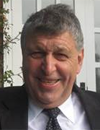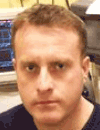Other Track AgendasBiotherapeutics | Cell Culture | Single Use Technologies | Stem Cells |

Wednesday, 27 June 201208:00 | Registration | |
Cell Line Development |
| | 09:00 |  | Keynote Presentation Quality Control of Cell Lines
John Masters, Professor, University College London, United Kingdom
Quality control is often low on the agenda of cell culture scientists. Perhaps the most important aspect is cell line authentication, the main topic of this lecture. |
| 09:30 | Novel Approaches to Cell Line Development
Mark Smales, Professor, University of Kent, United Kingdom
This presentation will discuss a high-through put screening approach developed to select for CHO cell lines at the multi well plate stage that will generate 2+ g/L of antibody at the bioreactor scale. | 10:00 |  | Keynote Presentation Industry Cell Lines: Challenges and Trends
Jianguo Yang, Principal Scientist and Senior Manager, Genzyme/Sanofi, United States of America
This presentation is an overview for the major challenges, including vector and host engineering, clone selection and cell line stability, cell banking, platform medium and process development, product quality assessment and their future trends. |
| 10:30 | Coffee Break and Networking in the Exhibition Hall | |
3D Cell Culture |
| | 11:15 | The Famous vs. The Inconvenient – or Why Use 3D-Culture Systems
Eric Gottwald, Principal Investigator, Karlsruher Institute for Technology, Germany
One of the boosts for the development of new 3D-culture techniques is due to elaborated manufacturing and surface modification techniques, especially micro and nano systems technologies that have either improved dramatically or have evolved even lately. | 11:45 | Alvetex: Technology That Enables Routine 3D Cell Culture
Stefan Przyborski, Professor, University of Durham, United Kingdom
Alvetex® scaffold technology provides a solution for generating real three dimensional (3D) cell culture simply and routinely, overcoming the limitations imposed by conventional culture methods. Data will be presented showing how cells growing in alvetex® scaffold demonstrate improved viability, functionality and form complex structures not seen with traditional 2D cell culture. | 12:15 |  Technology Spotlight: Technology Spotlight:
Manufacturing Cell Therapy Products – Current and Future Challenges
Christian Bos, Executive Program Manager, Lonza AG
Cell therapy products are currently manufactured in semi-manual processes. These are suitable to provide product for clinical trials and early commercialization phases. Beyond this, cell therapy products will have to be manufactured and processed in truly scalable systems and Lonza is developing such processes.
| 12:30 | Lunch and Networking in the Exhibition Hall | 13:30 | Poster Session | 14:15 | Development of a 3D Culture System for an in vitro Model of Human Trabecular Meshwork
Susan Sharfstein, Associate Professor, University of Albany, United States of America
This presentation will discuss our efforts to culture human trabecular meshwork cells on novel porous substrates. We envision that these cultures will serve as an in vitro model to test new glaucoma therapies, helping to reduce the incidence of glaucoma-induced blindness. | 14:45 | 3D Organotypic Cultures and Future Perspectives of Such Techniques in Predictive Toxicology Using "omics"
Fozia Noor, Biochemical Engineer, Saarland University, Germany
Different 3D cultivation methods used in our lab will be presented. Such systems allow long term maintenance of liver cells and their use for chronic repeated dose toxicity assessment. | 15:15 | Coffee Break and Networking in the Exhibition Hall | |
Application and Manipulation of Cultured Cells |
| | 16:00 | Guilt by Association: Coexpression Analysis of the CHO Transcriptome
Colin Clarke, Research Scientist, Dublin City University, Ireland
This talk will focus on the methodology and findings from one of the largest and most diverse analyses of the CHO transcriptome to date. A new online tool to make CHO gene coexpression data publically available in a user-friendly manner will also be discussed. | 16:30 | Proteomic Analysis of Chinese Hamster Ovary Cells; Application to Understanding the Role of miRNAs as Potential Engineering Targets in Bioprocess-Relevant Phenotypes
Paula Meleady, Senior Research Scientist/Programmer, Dublin City University, Ireland
This presentation will review the use of proteomics technology to better understand bioprocess-relevant phenotypes and to investigate the impact of MicroRNAs (miRNAs) on the proteome of recombinant Chinese hamster ovary cell lines. | 17:00 | Public Funding for Academic Bioprocessing Research in the UK
Ben Sykes, Senior Business Interface Manager (Pharmaceuticals/BRIC, BBSRC, United Kingdom
The UK Government recognises the importance of academic research in bioprocessing and often views it in the context of the development of new products or technologies for the pharmaceutical industry. As a result, funding schemes aimed specifically at bioprocessing usually attempt to underpin industrial needs. This presentation will highlight the most relevant funding schemes and also other more general opportunities that academics in this area can pursue. | 17:30 | Drinks Reception |
Thursday, 28 June 2012 |
Developments in Stem Cell Culture |
| | 09:30 |  | Keynote Presentation Challenges for Stem Cell Bioprocessing - Scale-up or Scale-out?
Christopher Hewitt, Professor, Loughborough University, United Kingdom
The scale-up techniques to be developed for human cells are analogous to those already developed for biopharmaceutical production using mammalian cells at large scales. However, there are a number of unique challenges that need to be addressed, because the quality of the cell is paramount, rather than the proteins that they express. |
| 10:00 | Engineering Efficient Pluripotent Stem Cell Differentiation Processes
Farlan Veraitch, Lecturer, University College London, United Kingdom
My talk will discuss his research group’s work on the development of robust, reproducible and efficient stem cell differentiation processes. | 10:30 | Coffee Break and Networking in the Exhibition Hall | 11:15 | Characterisation of Pluripotent Immortal Postnatal Mouse Neural Crest-Like Stem Cells
Elena Sviderskaya, Researcher, Cell Signalling Research Centre, St. George's, University of London , United Kingdom
We have established a novel type of pluripotent neural crest-like stem cells (NCLSCs) from neonatal mouse epidermis (Sviderskaya et al., 2009, FASEB J). These cells were isolated as three independent immortal lines. | 11:45 | Intervertebral Disc and Mesenchymal Stem Cell Research
Benjamin Gantenbein, Professor, University of Bern, Switzerland
Injection of primary autologous mesenchymal stem cells (hMSCs) injected into the intervertebral disc holds strong promises. However, the disc is a “harsh” environment with low pH, oxygen and low glucose concentration. Thus, “pre-conditioning” of hMSCs might be a necessity prior transplantation. | 12:15 | Lunch and Networking in the Exhibition Hall | 13:30 | Poster Session | |
Process Optimisation, Timeline Reduction and New Approaches |
| | 14:15 | Metabolite Profiling of CHO Cells: Developing Tools to Optimise Bioprocessing
Alan Dickson, Professor, The University Of Manchester, United Kingdom
This presentation will deliver exemplar studies that illustrate the power of metabolite profiling for interrogation of bioprocessing | 14:45 | Nanotechnology: Driving the Future of Organ Development
Alexander Seifalian, Professor, University College London, United Kingdom
Biocompatible nanocomposite materials with surface nanotopography as well as nanoparticles including fluorescence nanoparticles “quantum dots”, silver nanoparticles and others have been instrumental in development of organs as 3D scaffold and stem cells. | 15:15 | Coffee Break and Networking in the Exhibition Hall | 15:45 | Systematic Quantitative Light Microscopy of Metastatic Cells in vitro – Potential for Diagnosis
Daniel Zicha, Head of Light Microscopy, Cancer Research UK, United Kingdom
Quantitative light microscopy of cells in tissue culture provides an objective description of their morphology and behaviour at increasing levels of detail. Application of this principle to cancer cells allows correlation of in vitro measurements with malignancy in vivo. | 16:15 | Using the ambr(TM) System as a Clone Screening Tool
Wendy Hsu, Engineer/Group Leader, Genentech Inc, United States of America
ambr(TM) is an automated workstation that provides individual monitoring and control of culture DO and pH in single-use, stirred-tank bioreactors at a working volume of 10-15 mL. This talk reviews our evaluation of the system’s ability to mimic bench-top bioreactors and its application in clone screening. | 16:45 | Characterisation of an Automated Micro Bioreactor With CHO Cultures: Process Control, Clone Ranking, Process Optimisation and DoE
Barney Zoro, Product Manager, TAP Biosystems, United Kingdom
Industry-based testing of a single use automated microbioreactor approach has generated a range of case studies covering key requirements and applications to CHO culture bioprocess development. | 17:15 | Close of Conference |
|

 Add to Calendar ▼2012-06-27 00:00:002012-06-28 00:00:00Europe/LondonCell CultureSELECTBIOenquiries@selectbiosciences.com
Add to Calendar ▼2012-06-27 00:00:002012-06-28 00:00:00Europe/LondonCell CultureSELECTBIOenquiries@selectbiosciences.com